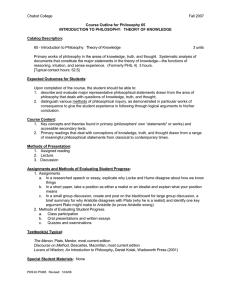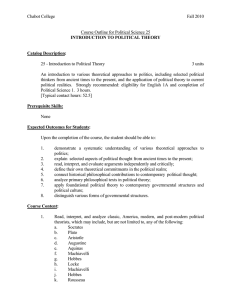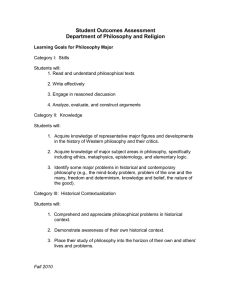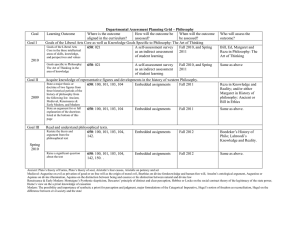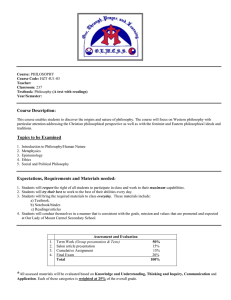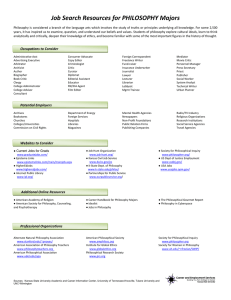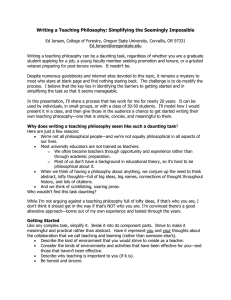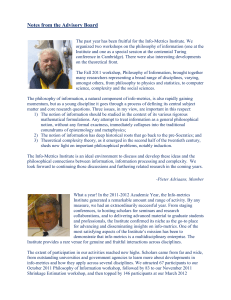Chabot College Fall 2007 70 - Introduction to Political and Social Philosophy
advertisement
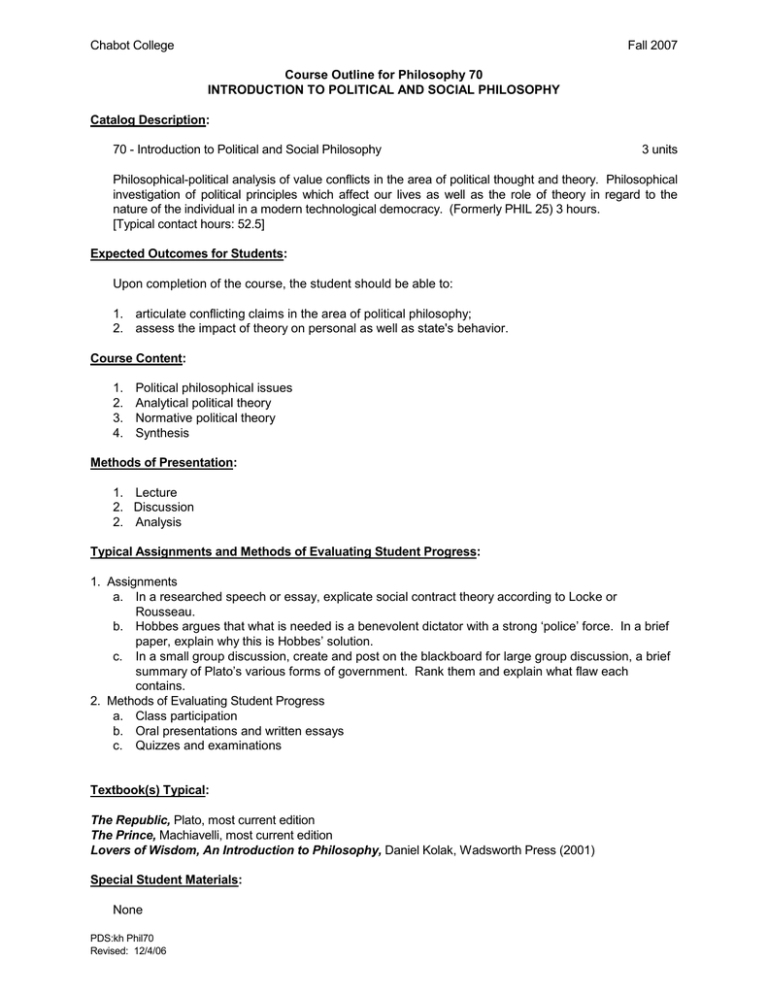
Chabot College Fall 2007 Course Outline for Philosophy 70 INTRODUCTION TO POLITICAL AND SOCIAL PHILOSOPHY Catalog Description: 70 - Introduction to Political and Social Philosophy 3 units Philosophical-political analysis of value conflicts in the area of political thought and theory. Philosophical investigation of political principles which affect our lives as well as the role of theory in regard to the nature of the individual in a modern technological democracy. (Formerly PHIL 25) 3 hours. [Typical contact hours: 52.5] Expected Outcomes for Students: Upon completion of the course, the student should be able to: 1. articulate conflicting claims in the area of political philosophy; 2. assess the impact of theory on personal as well as state's behavior. Course Content: 1. 2. 3. 4. Political philosophical issues Analytical political theory Normative political theory Synthesis Methods of Presentation: 1. Lecture 2. Discussion 2. Analysis Typical Assignments and Methods of Evaluating Student Progress: 1. Assignments a. In a researched speech or essay, explicate social contract theory according to Locke or Rousseau. b. Hobbes argues that what is needed is a benevolent dictator with a strong ‘police’ force. In a brief paper, explain why this is Hobbes’ solution. c. In a small group discussion, create and post on the blackboard for large group discussion, a brief summary of Plato’s various forms of government. Rank them and explain what flaw each contains. 2. Methods of Evaluating Student Progress a. Class participation b. Oral presentations and written essays c. Quizzes and examinations Textbook(s) Typical: The Republic, Plato, most current edition The Prince, Machiavelli, most current edition Lovers of Wisdom, An Introduction to Philosophy, Daniel Kolak, Wadsworth Press (2001) Special Student Materials: None PDS:kh Phil70 Revised: 12/4/06

